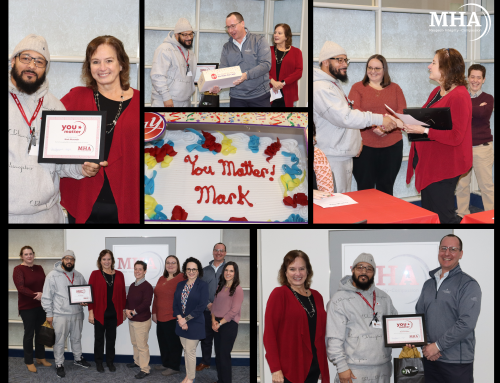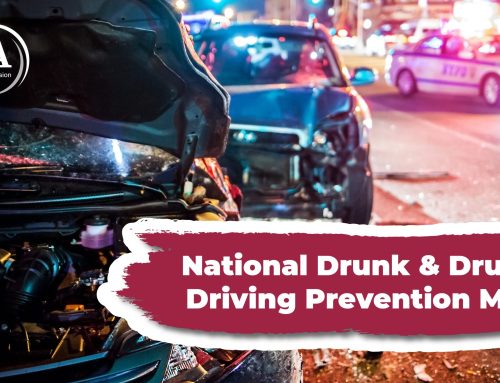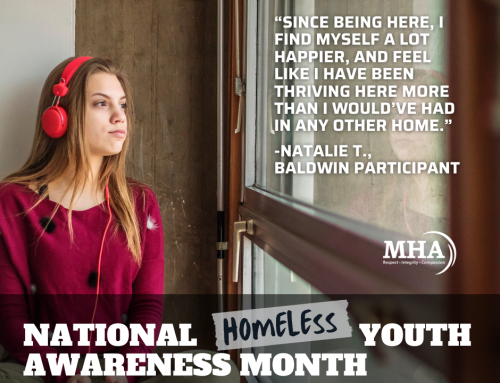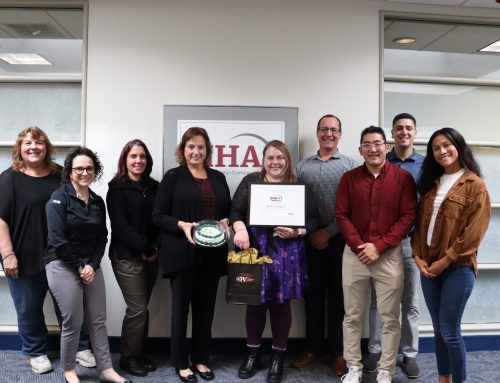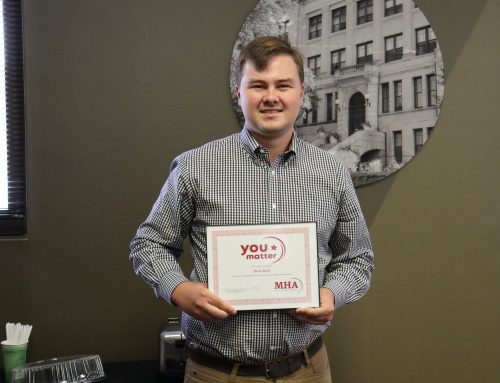Jason Dorval’s fingers dance across the strings of his acoustic guitar. With a tinge of emotion he sings, “Don’t ever change who you are.” The song is Purple Flowers, which Jason wrote for a girl he was madly in love with. “It didn’t work out,” he smiled, “but I still have the song.”
Jason has played guitar for 18 of his 36 years, and as he rests against an office table strumming, he has stage presence. He is clearly a skilled musician. He’s also a recovering heroin addict, though creativity came first.
“I grew up in a neighborhood with a creative collective of people who made art, wrote stories and wrote music,” he recalled. “We banded together as teens and put on shows in the neighborhood. I had always been anxious and withdrawn as a kid, and when I discovered I could do things with a group of people, I walked right in. It was a special time in my life.”
At 16, Jason moved out of his parent’s place—and partied a lot. “I was taking chances taking weird pills,” he admitted. “I found a muse between opioids and music that was super addictive. A lot of my songs were drenched in drug overtones because there was so much about drugs in my life.”
Like many people who become addicted to street heroin, Jason got hooked through pain killers that were prescribed to him. “I was given Percocet after surgery. I knew what kind of drug it was and I took more than I should. When they ran out I started doing oxycodone pills. Those pills get expensive. By the time I had a serious habit, heroin was a cheaper alternative. Like everyone in my circle, I went to heroin. I started sniffing it but eventually went needle.”
Ultimately Jason realized he needed help. “Both my mom and stepdad are in recovery,” he said. “Addiction turned me into an incredible liar, but I told them the truth. They got me into Opportunity House, which helped. After I left, I reconnected with my friends, started writing music again and stayed sober through it all. But one day I relapsed. Without the right people around, it was that easy.”
Ever-present anxiety made Jason’s addiction worse. He’d been working with the Department of Mental Health and needed help with housing. DMH referred him to MHA to get him housed and stay clean.
“Within a month of connecting with MHA I had a domicile,” said Jason. “I wanted to turn my life around, and since I was starting at the bottom I needed help. MHA was there to make sure my basic needs were met. They were always patient with me. When I made mistakes with drugs and money issues—and I made mistakes—they got me on track. Things in my life now are better because of MHA. I have to put in the work on my end, and it’s hard work, but Ezra is there for me.”
Ezra Studstill is a Housing Specialist with Housing First and Jason’s Outreach Coordinator. “Ezra and I talk about recovery and the future of my life with the assistance of the program,” Jason explained. “He counsels me about my addiction. He helps get me spiritually in a good place. I see him less than I did before because I’m less reliant, but I still see him regularly. My family helps, too. Addiction is in my family, but so is recovery. For every problem I bring to them, they have an idea they learned in a 12-step program. My mom is 21 years sober and my stepdad is 18 years sober. Soon I will be four years sober.”
Jason still goes to rock and roll shows because the music is central to who he is, but he sees the scene differently now. “When your life has been about drugs and being with people who use, and when you’re ready to make a change, you have to uproot your life and get away from those people,” he said. “You need the support of people who want what’s good for you. I have that now. My best friend who has sustained me is a nurse who doesn’t do drugs or drink or anything. My new band is called YIKES and we’re working on a record called Polydipsia. My 12-step sponsor was my stepfather’s sponsee, which makes a continuing connection. And there’s Ezra, who’s done so much for me. These are the people I want around.”

